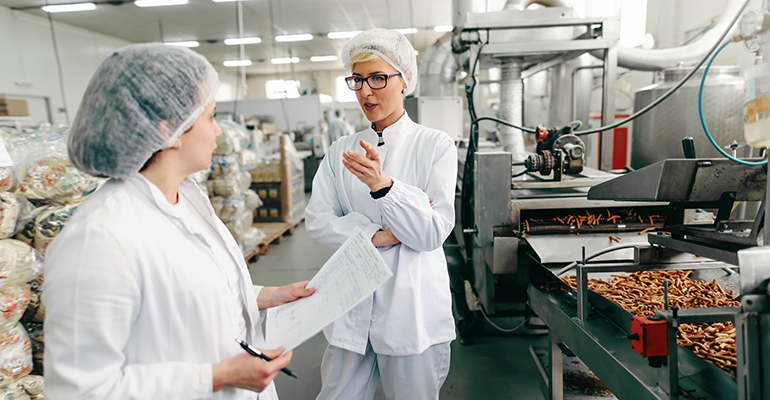News
Must-knows for manufacturers on EU sustainability legislation
16 Feb 2023
New EU regulations require manufacturers to implement accurate, comprehensive sustainability reporting – and almost all companies working within Europe will be impacted, says Deloitte analyst Birthe van der Vaart.
The European Union’s (EU) Green Deal and climate and financial regulations are entering the food landscape, spurring updates to current requirements and shaping the future of food manufacturing. The laws will significantly impact food businesses’ financial reporting, operations, communication, supplier relations, and entire value chain.

Food manufacturing businesses need to prepare for the Fit for 55 package, a series of proposals to revise and update EU legislation. Green energy and the transition towards renewable energy, circularity, and zero emissions fall within the EU’s legislative remit. Due diligence and sustainability reporting also feature in the EU’s upcoming legislative framework.
The EU is pursuing these regulations as part of the continent’s efforts to become climate neutral by 2050. Simultaneously, today’s consumers are becoming more vocal about the importance of sustainability and sustainable reporting, prompting sustainable action.
Looking ahead, three key legislations will impact the food manufacturing industry: EU taxonomy, the Corporate Sustainability Reporting Directive (CSRD), and the Directive on Corporate Sustainability Due Diligence.
EU taxonomy: Standardised definitions of sustainability
The EU taxonomy is a classification system that creates a list of environmentally sustainable economic activities. It will demand more transparency from companies in a comparable way.
“It is going to avoid cherry picking and writing a beautiful, glossy sustainability report while you are only picking out the nice things [that] you can report on,” Birthe van der Vaart, risk advisory and sustainability partner at Deloitte told attendees at Fi Europe 2022.
The EU taxonomy aims to standardise sustainability definitions and identify six key operational objectives. It will assess the validity of businesses’ reported activities and measure their green credentials, working to ensure clarity and helping to dispel greenwashing.
 © AdobeStock/dusanpetkovic1
© AdobeStock/dusanpetkovic1
Reporting is already underway. How businesses manage water usage, handle the circular economy, pollution prevention, and biodiversity will be important in 2023. Businesses will need to report on these elements and fully implement the mechanisms to do so in 2024.
Corporate Sustainability Reporting Directive (CSRD): ‘A gigantic switch for sustainability’
The Corporate Sustainability Reporting Directive (CSRD) entered the legislative landscape on 14th December 2022. “Almost all companies working within Europe will be impacted,” said van Der Vaart. Accountants will have to sign off and ratify their numbers, answering questions on reliability, the applicability of parameters, the presence of evidential proof, and if it can be audited.
The new legislation signals “a gigantic switch for sustainability and sustainability reporting”, said van der Vaart. Food manufacturers will need to understand their scope one, two and three emissions, requiring them to take responsibility for the entire value chain, both upstream and downstream.
They must approach the importance and credibility of this reported data in the same way as their financial data to help develop trust with consumers.
Additional questions revolve around: What kind of suppliers do I use? How do I support my suppliers to become more sustainable? “Those questions will play a big role in the coming two or three years when we are facing the implementation of this EU Green Deal law for the CSRD,” said van Der Vaart.
“The EU hasn’t thought of a fine system like General Data Protection Regulation (GDPR), but I’m guessing it’s coming our way,” van Der Vaart added.
